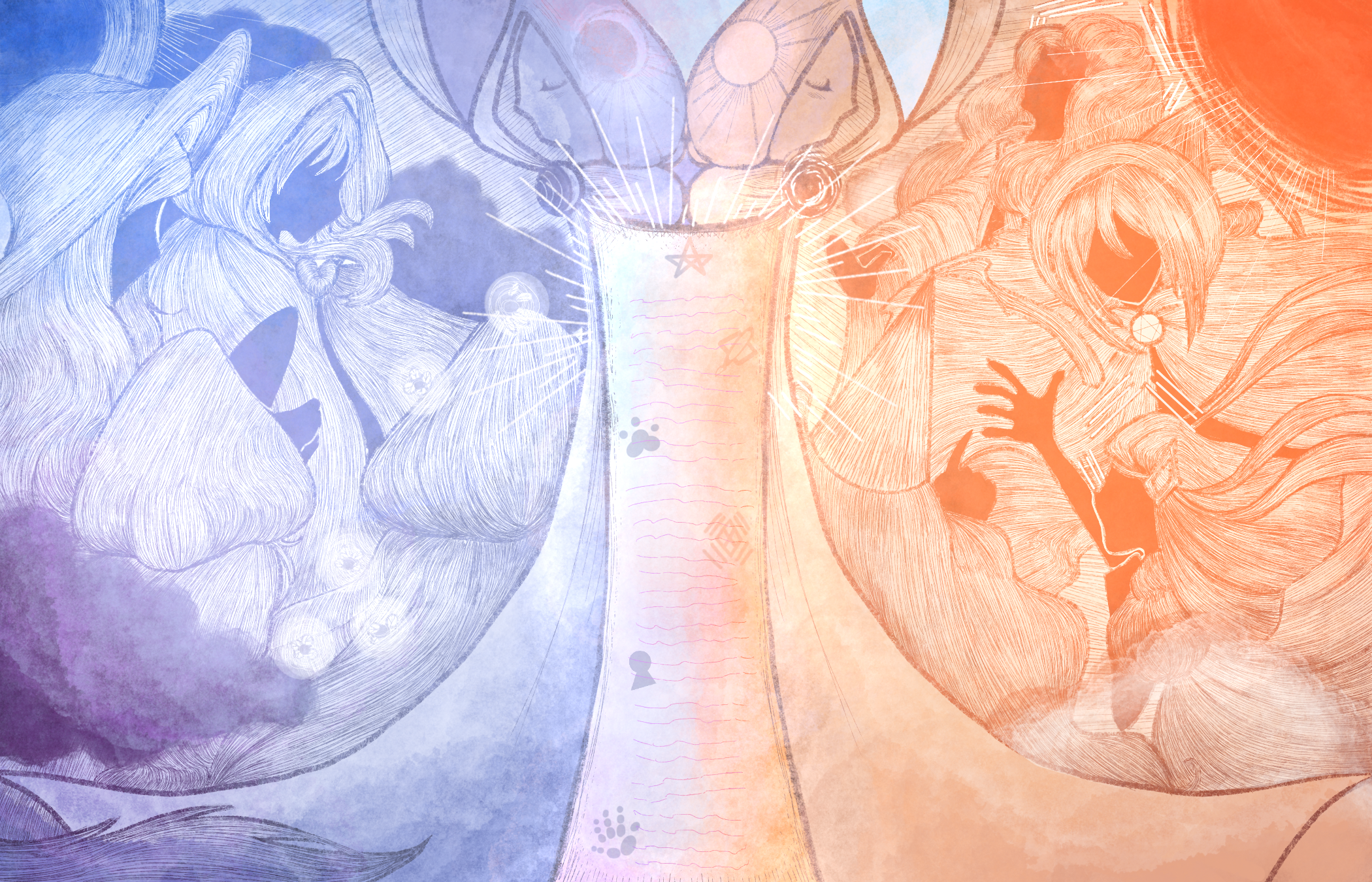Mage Factions

| |
|---|---|
| |
| Basic Characteristics of Mages in Both Factions | |
| Lifespan | Torchbearers have a normal human lifespan. Thaumaturges live extended lives. |
| Homeland/Main Continent/Home Country | All over-the order names and rules can change slightly depending on location. |
| Skin Tone | Ranges from pale to dark shades. |
| Size | Torchbearers are usually humans from the dominant ethnic group of the land, so they tend to skew Medium. Thaumaturges tend to be human, but can include humanoids, so they range from tiny to large. |
| Magedom Culture | Torchbearers protect arcane law and institutions-Thaumaturges hide deep in biomes and monitor magic anomolies and beings. |
| Policy on Humanoids? | Torchbearers hide their existence from the rest of the world. Thaumaturges are friendly to humanoids and support their communities. |
| Policy on Neighbors? | Torchbearers are indifferent to neighbors or actively dislike them, though some do want to study them. Thaumaturges work with them every day, as it is their job to monitor them. |
All people that have walked this earth and currently are walking the earth have tussled with the idea of transformation and where they stand. As time goes on, oppressor becomes oppressed, and oppressed oppressor. Whole ethnicities and species lost to chaos of history and time moving on without them. However, groups that have been around for ages upon ages have managed to transform their ways of life, and with a few blessings from lady luck, survived into every age. Mages, a group of people that are treated as a cohesive group in mage history, have also gone through this cycle, having made their mark around the world and lived to tell the tale.
However, no group is free from the strife of the world's cycle. Mages have been persecuted and persecutor in the struggle to survive every era and carve out a life for themselves. It is this struggle that defines magedom to this day, a shadow over which every budding magus looms.
From ancient times to now, mages served two niches-one side kept peace between man and the wilds, and provided spiritual support for their people. In doing this, they spoke to the neighbors, beings of great power that could, in one flick of the wrist, summon tornadoes, tsunamis, and volcanic eruptions. By negotiating with the neighbors, these people could bring bounty and destruction alike to their people, and use sigils, runes, alchemy, and spells no mortal could comprehend. Usually, these mages had small packs or covens, to being a singular force to be reckoned with-whatever the case may be, their might, a combination of insight written by their ancestors and their link to the veil, alienates them from man, and so they cling to the wilds.
The other niche was more oriented on the world of men, acting as servants and counselors to kings, queens, princes, and other authority figures. They too would give spiritual support, but usually in organized settings, and for more established spiritual practices. Cities and towns were their homes-they consort with their fellow man more than other mages, and neighbors beyond gods they prayed to. Using man-documented history, they use the limited but more robust and unpredictable magic utlized purely by man, focusing on reinforcing buildings, artificing, and warding out malicious beings from their kinfolk.
For a time, this split was muddled, as mages were often in danger depending on the time and place-as such, very few managed to worm their way into stories, the vast majority of them fading into history, and many mages across this split would consult one another in an attempt to balance the magic world-those who deal with those that lurk behind the veil would tell their city-dwelling kin of what herbs are good for health, where old gods sleep and should not be disturbed, how one can unlock the wild magic within-and those that dwell among humans would tell their wild-dwelling kin of the wonders of their innovation, the ways in which they can fortify their settlements, and how more advanced tools beyond wooden or stone staves and wands can unlock a new age of magic.
For a time, this worked, and the mage world was a place where mages, fearing punishment for their prowess, could help their kin from the shadows as one. During this time, small mage civilizations popped up around the world, hidden deep in biomes, high in mountains, or even in the skies. During this time, mages were able to use wild magic, a magic only neighbors could understand and unlock within for a long time. In some civilizations, good neighbors and oddfolk lived in peace alongside mages, going as far as to become mates with the mages in some cases.
However, this peace did not last long, as ideals would begin to clash as the heirs to the world, humans, began to desire more in their lives...so much more, in fact, that it would shake the entire world, arcane and not.
